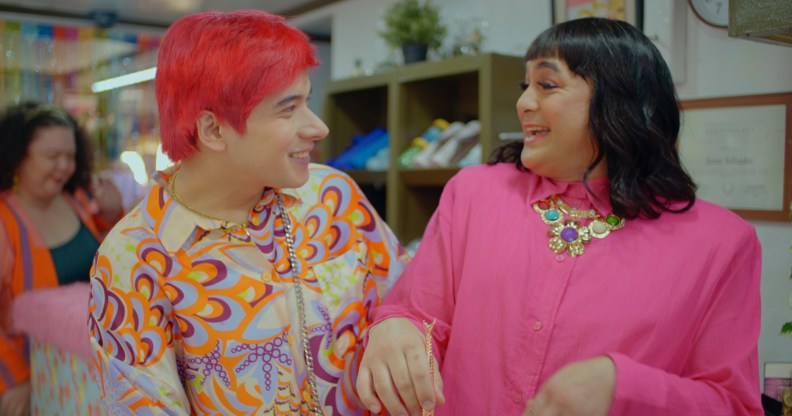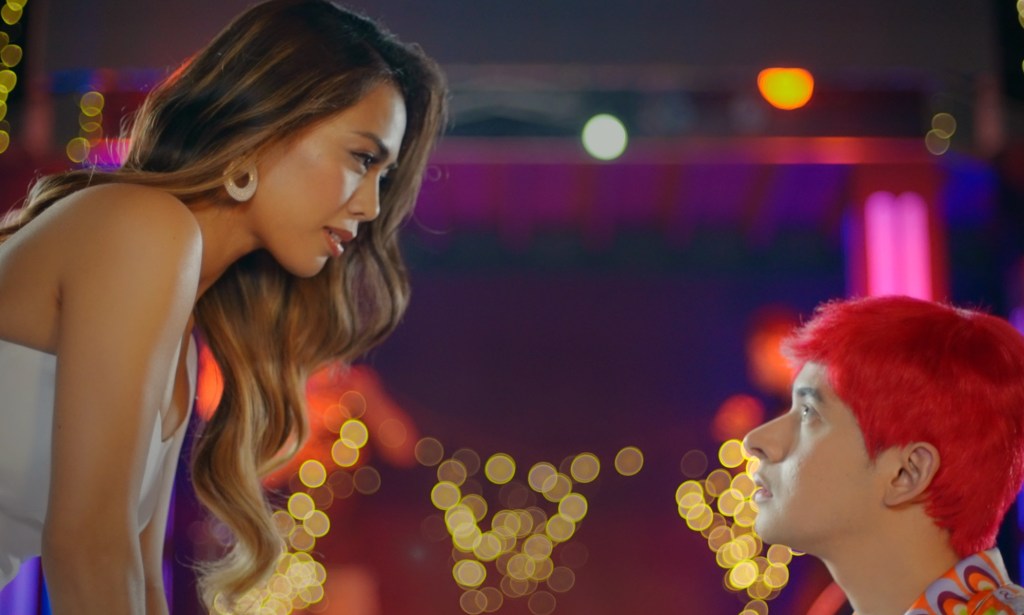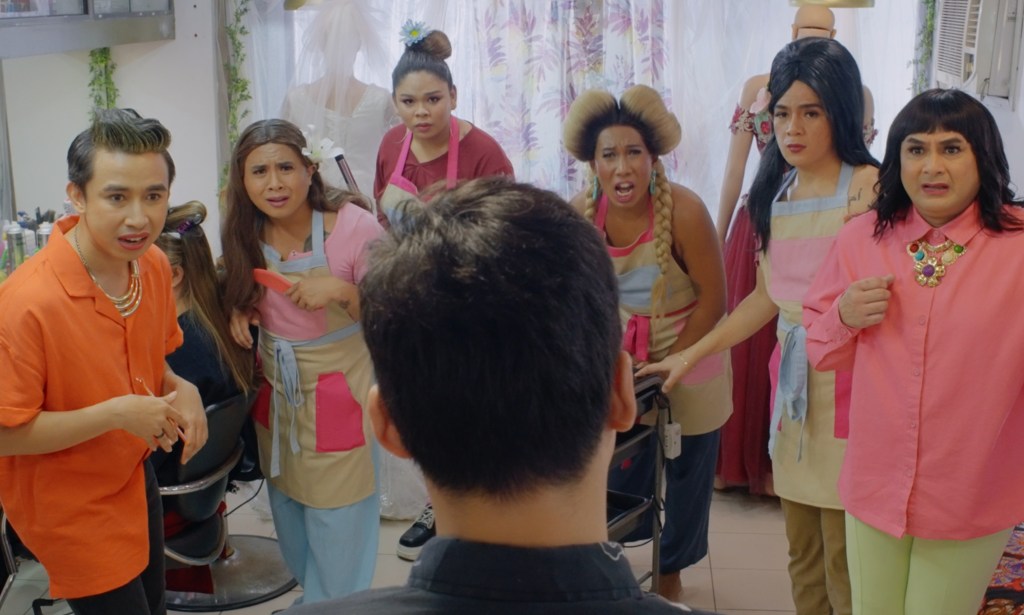This unconventional coming out story is a love letter to queer Filipinos

I Love You, Beksman opens Queer East Festival 2023 . (Viva Films)
Award-winning director Percival Intalan’s reverse coming out story, I Love You, Beksman, is turning LGBTQ+ stereotypes on their head.
When it comes to coming out stories on the big screen, the LGBTQ+ community is all-too familiar with watching queer characters struggle with telling friends and family about same-sex desire. In director Percival Intalan’s captivating new film I Love You, Beksman, however, societal preconceptions about sexuality are upended when its central gay protagonist suddenly discovers he’s straight.
Dali (Christian Bables), is a flamboyant Filipino make-up artist and fashion designer who is completely unafraid to be himself. With bright red-dyed hair, a dazzling collection of patterned shirts and all the quirks that made gay men gay in early 2000’s television, he’s the walking embodiment of a stereotypically effeminate gay man.

Usually unbothered by people’s preconceived notions about his identity, trouble arises when Dali falls head over heels for beauty-pageant winner Angel (Iana Bernadez). There’s only one problem: no one believes he is straight.
What follows is a playful exploration of the effects of toxic masculinity as Dali tries to conform to societal standards of what it means to be “straight”, forcing the audience to question the stereotypes we have projected on to the people we know.
The Philippines has a thriving pro-LGBTQ+ rights movement. In 2016, Geraldine Roman became the first openly transgender woman elected to the Congress of Philippines, just one of several queer politicians nationwide. There is no law against same-sex couples, the age of consent is equal for any person and there’s protection from discrimination in the workplace. Notably, there’s also a Drag Race Philippines.
However, there is still a long way to go when it comes to LGBTQ+ equality, as campaigners continue to fight for the recognition of same-sex marriage, for trans people to be legally able to change their gender, and tackle the continued violence against LGBTQ+ people.
What makes I Love You, Beksman a particularly delightful queer romp is the sensational supporting cast, especially Dali’s family. The spirited household is made up of his fashion legend father, Jamie (Keempee de Leon) and his mother – aka sapphic queen, Gemma (Katya Santos) – along with his father’s boyfriend and a collection of queer friends who start every meal by saying: “Eat or be eaten.”

The film is a refreshing addition to the genre of LGBTQ+ film, as every single queer character is resolutely comfortable in their gender and sexuality, leaving the existential crisis to the straight character.
At the same time, it effortlessly incorporates hot-button socio-political topics in the Philippines today, holding the country to account for its casually cruel homophobia, failings on marriage equality and gendered stereotypes which harm everyone.
The film also refuses to focus on trauma, ending on a beautifully optimistic (and outrageously flamboyant) note as it celebrates what life looks like if we resist the gender binary and all just do what makes us happy.
I Love You, Beksman debuted at the Queer East Film Festival. Find out more information here.
How did this story make you feel?

